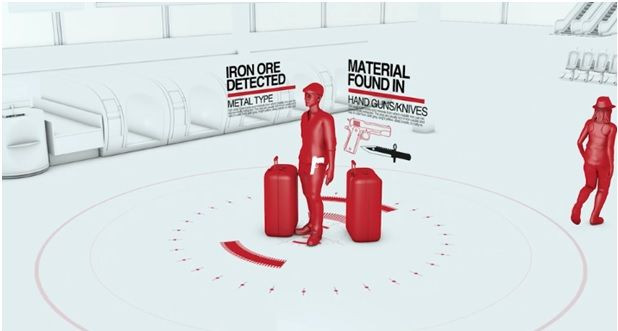Examining 5 important aspects related to the security industry

Security in all its forms is a prominent issue in the world today. Individuals and organisations are always seeking new ways to protect themselves from dangerous and evolving threats like terrorism, narco wars, sudden shootouts and the outbreak of war, cyberattacks, and perhaps even another full-scale terror threat on the scale of 9/11.
The protectionist stance of US President Donald Trump, which he recently reemphasised by making a statement of support for the Central Intelligence Agency (CIA), is tapping into the collective fear of possible exposure to sudden, damaging and indefensible hostile acts. Not surprising is that security firms, agencies, organisations and individuals who can assuage these heightening concerns and provide the fearful a fair measure of protection are seeing an increase in demand for their products and services.
The latest figures, as of 2013 from Security magazine, report that the international global market is worth US$350 billion (AU$461 billion). No similar statistics have been found for 2016, although it would be reasonable to infer that the 2013 numbers will increase. According to WIRED magazine, cybersecurity alone is expected to increase its net worth to US$120 billion (AU$159 billion), a significant increase from its US$3.5 billion (AU$4.61 billion) net worth in 2004. Investors, entrepreneurs and business people thinking of entering into this seemingly unsinkable security industry, which seems to have no end in sight to its rise, should keep in mind five important aspects related to it.
First, the industry has many layers.
The most prominent right now is cybersecurity, given the accelerated adoption of the Internet of Things (IoT) into mainstream business and the media-event hacking of giants like Facebook and Yahoo. The other layers have to do with weaponry, infrastructure manufacture, research and development, espionage, and training. These can still be categorised into various segments, like use in global military encounters, neighbourhood police adoption, enterprise protection, and individual or home security.
Second, the biggest security threats for the next 5 years have been mapped out.
These are the ones that both consumers and investors of all kinds will gravitate to, and which more innovative businesses should focus. The Task & Purpose website identifies them as cybersecurity, crime, mobile technology, natural disasters and globalisation.
Third, technology is always advancing the development of security measures and platforms to overcome danger.
Security professionals and organisations must always be one step ahead of a potential threat. One of the more innovative inventions today is being commercialised by Patriot One Technologies Inc. (OTCMKTS: PTOTF), (TSX.V: PAT), (FRA: OPL). Its cutting-edge low-power microwave radar screening device is the world’s most advanced technology for the detection of on-body concealed weapons, such as firearms, grenades and knives that can be identified from secure, inconspicuous locations.
What makes the Patriot One device revolutionary is that it can locate potentially harmful weapons even on moving targets by broadcasting a high-frequency microwave radar field as it cognitively learns and continuously perfects its detection capability.
Another compelling security technology, which was named in Security Today’s Top Security Innovations at the Consumer Electronics Show (CES) 2017 in Las Vegas, is Alarm.com’s drone security system. A show-stopping presentation of the flying drone demonstrated how it can soar above the area the user wants to protect, and how it can alarm them of any suspicious movements.
Fourth, security professionals are always in demand.
According to the US Department of Labor, current job-growth rate for cybersecurity-related positions is 11 percent for all professions. Recruiters look for diversity in candidates with a variety of qualifications, including in management, programming and networking experience, analytics, and business knowledge and expertise.
In a competitive market, prospective employers may be cautious in relegating valuable assets and the safety of their organisations to an unknown applicant. To stand out, says TechRepublic, a candidate for a security position must have a combination of experience, skill and industry certification. An important benefit in qualifying for a position is to have a solid understanding for handling a security threat.
Finally, the major enterprises invest heavily in the security of their leaders.
Conglomerates do not just invest in security systems that protect their infrastructure, but they also allocate significant resources to protect their executives and other leaders. Any harm done to these individuals can have serious, long-range repercussions on the company’s business objectives and current market standing. Business Insider names Intel, Facebook and Apple among these firms paying large sums to protect their CEOs.






















